Rendezvous mit dem Tod: Warum John F. Kennedy sterben musste is a film of genre Documentary
Rendezvous mit dem Tod: Warum John F. Kennedy sterben musste (2006)
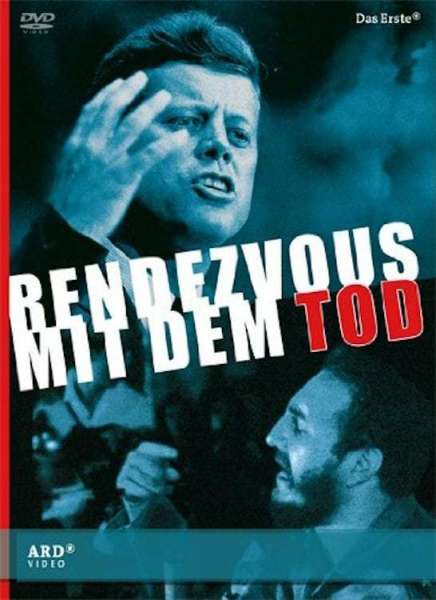
If you like this film, let us know!
- Infos
- Casting
- Technical infos
- Photos
- Videos
- Film quotes
- Characters
- Music
- Awards
Genres Documentary
Themes Films about families, Documentary films about law, Documentary films about historical events, Documentaire sur une personnalité, Documentary films about politics, Political films
Rating63%










Rendezvous with Death (German: Rendezvous mit dem Tod: Warum John F. Kennedy sterben musste) is a 2006 German documentary film that claims that G2, a secret service organization of the Cuban government, organized the assassination of U.S. President John F. Kennedy. The film first aired on January 6, 2006 on German television station Westdeutscher Rundfunk. It was directed by Wilfried Huismann.
Rendezvous with Death features interviews with four Cuban former secret service agents and an American FBI agent, and also cites documents from KGB and Mexican government archives.
A possible Cuban connection was investigated by the US immediately after Kennedy's death.
But an FBI officer sent to follow the Oswald's trail during a visit to Mexico was recalled after only three days and the investigation called off.
Laurence Keenan, now 81, said it was "perhaps the worst investigation the FBI was ever involved in".
"I realised that I was used. I felt ashamed. We missed a moment in history," Mr Keenan said.
Veteran US official Alexander Haig told the filmmaker that Kennedy's successor, Lyndon B Johnson, believed Cuba was to blame and feared a pronounced swing to the right if the truth were known that would keep the Democrats out of power for a long time.
Mr Haig - a US military adviser at the time and later a secretary of state - told the filmmakers Johnson said: "We must simply not allow the American people to believe Fidel Castro could have killed our president."
"He [Johnson] was convinced Castro killed Kennedy and he took it to his grave.
Trailer of Rendezvous mit dem Tod: Warum John F. Kennedy sterben musste
Bluray, DVD
Streaming / VOD
Comments
Leave comment :
Suggestions of similar film to Rendezvous mit dem Tod: Warum John F. Kennedy sterben musste
There are 8971 with the same cinematographic genres, 11511 films with the same themes (including 7 films with the same 6 themes than Rendezvous mit dem Tod: Warum John F. Kennedy sterben musste), to have finally 70 suggestions of similar films.If you liked Rendezvous mit dem Tod: Warum John F. Kennedy sterben musste, you will probably like those similar films :
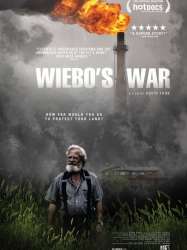
Wiebo's War (2012)
, 1h33Origin Canada
Genres Documentary
Themes Environmental films, Films about families, Films about religion, Films about terrorism, Documentary films about law, Documentary films about environmental issues, Documentary films about war, Documentary films about historical events, Documentaire sur une personnalité, Documentary films about politics, Documentary films about religion, Documentary films about technology, Documentary films about terrorism, Political films
Rating72%






Our Forbidden Places (2009)
, 1h45Directed by Leïla Kilani
Origin France
Genres Documentary
Themes Films set in Africa, Films about families, Documentary films about law, Documentary films about war, Documentary films about historical events, Documentaire sur une personnalité, Documentary films about politics, Political films
Rating64%





In 2004, the King of Morocco launched an Equity and Reconciliation Commission to investigate state violence during the Years of Lead. For three years, the film follows four families in their search for the truth: Activist, young rebel soldier or simple citizen, either they or their relations were imprisoned in different parts of Morocco. Each person tries to "find out", discover a "reason", to be able to mourn. But forty years later, the state secret finally unveils the existence of another, more intimate secret, the family secret. They all feel the need to reconstruct history and recover their parents, taken from them twice over, once by their disappearance and another by the secret. Choosing between deeply set silences, lies and taboos within and outside the families, over forty years.
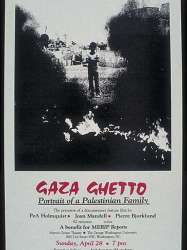
Gaza Ghetto (1984)
Genres Documentary
Themes Films set in Africa, Films about families, Films about immigration, Films about religion, Documentary films about law, Documentary films about war, Documentary films about historical events, Documentaire sur une personnalité, Documentary films about politics, Documentary films about religion, Political films, Films about Jews and Judaism
Rating56%





 , 52minutes
, 52minutesDirected by Robert Drew
Origin USA
Genres Documentary
Themes Films about families, Films about racism, Documentary films about racism, Documentary films about law, Documentary films about historical events, Documentaire sur une personnalité, Documentary films about politics, Political films
Rating77%





During a two-day period before and after the University of Alabama integration crisis, the film uses five camera crews to follow President John F. Kennedy, attorney general Robert F. Kennedy, Alabama governor George Wallace, deputy attorney general Nicholas Katzenbach and the students Vivian Malone and James Hood. As Wallace has promised to personally block the two black students from enrolling in the university, the JFK administration discusses the best way to react to it, without rousing the crowd or making Wallace a martyr for the segregationist cause.
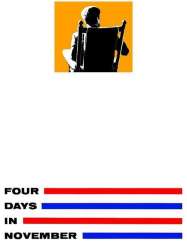
Four Days In November (1964)
, 2h2Directed by Mel Stewart, Mel Stuart
Origin USA
Genres Documentary
Themes Films about families, Documentary films about law, Documentary films about historical events, Documentaire sur une personnalité, Documentary films about politics, Political films
Actors Richard Basehart
Rating74%






The Colour of Olives (2006)
, 1h37Directed by Carolina Rivas
Origin Israel
Genres Documentary
Themes Films set in Africa, Films about families, Films about religion, Documentary films about law, Documentary films about war, Documentary films about historical events, Documentaire sur une personnalité, Documentary films about politics, Documentary films about religion, Political films, Films about Jews and Judaism
Rating70%





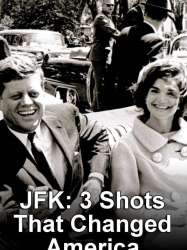 , 4h
, 4hOrigin USA
Genres Documentary, Historical
Themes Films about families, Documentary films about law, Documentary films about historical events, Documentaire sur une personnalité, Documentary films about politics, Political films
Actors Walter Cronkite
Rating84%






A Time for Justice (1994)
, 38minutesDirected by Charles Guggenheim
Origin USA
Genres Documentary
Themes Films about racism, Documentary films about racism, Documentary films about law, Documentary films about historical events, Documentaire sur une personnalité, Documentary films about politics, Political films
Rating67%





Une histoire des mouvements pour les droits civiques aux États-Unis, allant de l'assassinat d'Emmett Till en 1955 jusqu'à la loi Voting Rights Act de 1965.
 , 1h
, 1hDirected by Andrew Goldberg
Origin USA
Genres Documentary
Themes Films set in Africa, Films about racism, Films about religion, Documentary films about racism, Documentary films about law, Documentary films about war, Documentary films about historical events, Documentaire sur une personnalité, Documentary films about politics, Documentary films about religion, Political films, Films about Jews and Judaism
Rating67%






Budrus (2010)
, 1h10Directed by Julia Bacha
Origin USA
Genres Documentary
Themes Films set in Africa, Films about religion, Documentary films about law, Documentary films about war, Documentary films about historical events, Documentaire sur une personnalité, Documentary films about politics, Documentary films about religion, Political films, Films about Jews and Judaism
Rating76%





Jordana Horn in The Jewish Daily Forward states that: Budrus [is] a documentary by Julia Bacha that examines one West Bank town’s reaction to Israel’s construction of the security barrier. The town, with a population of 1,500, was set to be divided and encircled by the barrier, losing 300 acres of land and 3,000 olive trees. These trees were not only critical for economic survival but also sacred to the town’s intergenerational history. The film tells the story of Ayed Morrar, a Palestinian whose work for Fatah had led to five detentions in Israeli jails, but whose momentous strategic decision that the barrier would be best opposed by nonviolent resistance had far-reaching ramifications.
 Connection
Connection